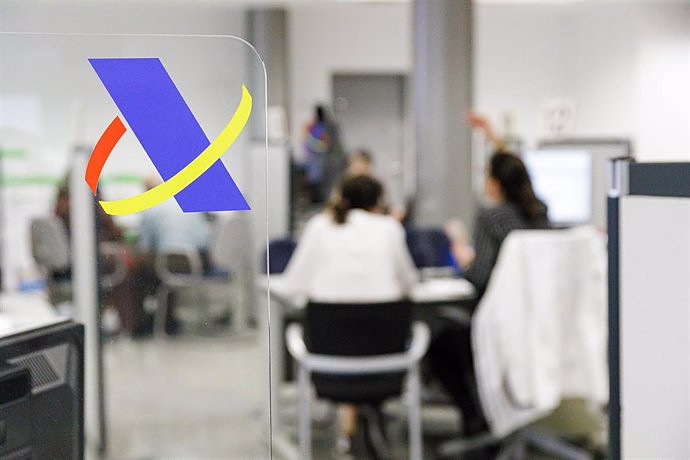Six million senior customers have benefited from the cashier service with face-to-face attention from 9:00 a.m. to 2:00 p.m.
MADRID, 20 Sep. (EUROPA PRESS) -
Spanish banks apply extended cashier hours in 81% of branches, after having doubled the number of branches that operate with said hours between December 2021 and June 2022, a measure that has benefited more than six million of clients over 65 years of age.
Last February, the employers' associations AEB, CECA and UNACC adopted new measures in updating the protocol to reinforce the social and sustainable commitment of the banking system, in addition to those already being applied by the entities themselves, aimed at improving the personalized attention of elderly or disabled people. In addition, they undertook to prepare a six-monthly report to monitor the measures adopted.
The document of the follow-up report on the measures aimed at improving the care of the elderly, to which Europa Press has had access, reflects that 100% of the entities have made progress in adopting measures to improve the personalized care of these groups .
All Spanish banking entities have extended cashier hours (from 9:00 a.m. to 2:00 p.m.), which is applied in more than 81% of bank branches. The number of branches that operate with extended cashier hours is more than double that of December 2021 and has increased by 7,908 branches as a result of the new measures.
It should be noted that there are offices whose location does not allow them to extend their hours, such as those located in special areas, or by business model (company offices), as well as the existence of one-person offices that are more complex to adapt.
During the first six months of the year, more than six million customers over the age of 65 (approximately two-thirds of the total) made use of the cashier service with face-to-face service from 9:00 a.m. to 2:00 p.m.
Likewise, 1.6 million calls from customers over 65 years of age have been attended preferentially, at no additional cost and through a personal interlocutor, through the lines specifically set up for this purpose. Added to this figure are the calls answered by the offices directly and personally.
The report also shows that 93% of entities have a telephone service from 9:00 a.m. to 6:00 p.m. and that 91% of the ATM network (37,111 ATMs) are already adapted to the needs of this group. ATMs have registered 142,000 incidents in this period, with an average correction period of one day, compared to the two working days established in the protocol.
As for the adaptation of digital channels, with simplified language and view, more than 75% of the sector has so far included these improvements in their web pages and mobile applications.
Regarding financial education, a total of 236,785 customers over the age of 65 have received financial, digital or fraud prevention training in the first six months of the year.
The financial education programs of Spanish banking entities are part of the Financial Education Plan promoted by the Bank of Spain, the National Securities Market Commission (CNMV) and the Ministry of Economic Affairs and Digital Transformation.
On its side, almost 41,000 employees in the banking sector have received specific training to offer a more adapted service to this group, exceeding 278,000 hours in total.
As a result of the signing of the protocol, the figure of the senior advisor has been extended, although not all entities have this modality. In total, at the close of the report, 3,900 specialized employees have been enabled to better attend to the demands and needs of the elderly.
The next protocol monitoring report will be published, predictably, in the first quarter of 2023. Until then, the sector will continue working to facilitate the adaptation of the elderly group to a new context characterized by digitization.

 Exploring Cardano: Inner Workings and Advantages of this Cryptocurrency
Exploring Cardano: Inner Workings and Advantages of this Cryptocurrency Seville.- Economy.- Innova.- STSA inaugurates its new painting and sealing hangar in San Pablo, for 18 million
Seville.- Economy.- Innova.- STSA inaugurates its new painting and sealing hangar in San Pablo, for 18 million Innova.- More than 300 volunteers join the Andalucía Compromiso Digital network in one month to facilitate access to ICT
Innova.- More than 300 volunteers join the Andalucía Compromiso Digital network in one month to facilitate access to ICT Innova.-AMP.- Ayesa acquires 51% of Sadiel, which will create new technological engineering products and expand markets
Innova.-AMP.- Ayesa acquires 51% of Sadiel, which will create new technological engineering products and expand markets Prosecutor's Office requests the filing of a new case against Shakira for alleged tax crime
Prosecutor's Office requests the filing of a new case against Shakira for alleged tax crime The Constitutional Court endorses the law that criminalizes harassment in abortion clinics
The Constitutional Court endorses the law that criminalizes harassment in abortion clinics PSC and Junts join the commitment not to agree with Vox or Aliança Catalana
PSC and Junts join the commitment not to agree with Vox or Aliança Catalana This is the subsidy reform: higher amounts and beneficiaries and compatibility of unemployment with a salary
This is the subsidy reform: higher amounts and beneficiaries and compatibility of unemployment with a salary How Blockchain in being used to shape the future
How Blockchain in being used to shape the future Not just BTC and ETH: Here Are Some More Interesting Coins Worth Focusing on
Not just BTC and ETH: Here Are Some More Interesting Coins Worth Focusing on They develop devices for the precise diagnosis of cancer patients
They develop devices for the precise diagnosis of cancer patients UMH researchers are working on a high-quality apricot crop that requires less irrigation water
UMH researchers are working on a high-quality apricot crop that requires less irrigation water The UPV develops an application to improve the quality of life of patients with glioblastoma
The UPV develops an application to improve the quality of life of patients with glioblastoma A sensor system obtains the fingerprint of essential oils and detects if they have been adulterated
A sensor system obtains the fingerprint of essential oils and detects if they have been adulterated A million people demonstrate in France against Macron's pension reform
A million people demonstrate in France against Macron's pension reform Russia launches several missiles against "critical infrastructure" in the city of Zaporizhia
Russia launches several missiles against "critical infrastructure" in the city of Zaporizhia A "procession" remembers the dead of the Calabria shipwreck as bodies continue to wash up on the shore
A "procession" remembers the dead of the Calabria shipwreck as bodies continue to wash up on the shore Prison sentences handed down for three prominent Hong Kong pro-democracy activists
Prison sentences handed down for three prominent Hong Kong pro-democracy activists ETH continues to leave trading platforms, Ethereum balance on exchanges lowest in 3 years
ETH continues to leave trading platforms, Ethereum balance on exchanges lowest in 3 years Investors invest $450 million in Consensys, Ethereum incubator now valued at $7 billion
Investors invest $450 million in Consensys, Ethereum incubator now valued at $7 billion Alchemy Integrates Ethereum L2 Product Starknet to Enhance Web3 Scalability at a Price 100x Lower Than L1 Fees
Alchemy Integrates Ethereum L2 Product Starknet to Enhance Web3 Scalability at a Price 100x Lower Than L1 Fees Mining Report: Bitcoin's Electricity Consumption Declines by 25% in Q1 2022
Mining Report: Bitcoin's Electricity Consumption Declines by 25% in Q1 2022 Oil-to-Bitcoin Mining Firm Crusoe Energy Systems Raised $505 Million
Oil-to-Bitcoin Mining Firm Crusoe Energy Systems Raised $505 Million Microbt reveals the latest Bitcoin mining rigs -- Machines produce up to 126 TH/s with custom 5nm chip design
Microbt reveals the latest Bitcoin mining rigs -- Machines produce up to 126 TH/s with custom 5nm chip design Bitcoin's Mining Difficulty Hits a Lifetime High, With More Than 90% of BTC Supply Issued
Bitcoin's Mining Difficulty Hits a Lifetime High, With More Than 90% of BTC Supply Issued The Biggest Movers are Near, EOS, and RUNE during Friday's Selloff
The Biggest Movers are Near, EOS, and RUNE during Friday's Selloff Global Markets Spooked by a Hawkish Fed and Covid, Stocks and Crypto Gain After Musk Buys Twitter
Global Markets Spooked by a Hawkish Fed and Covid, Stocks and Crypto Gain After Musk Buys Twitter Bitso to offset carbon emissions from the Trading Platform's ERC20, ETH, and BTC Transactions
Bitso to offset carbon emissions from the Trading Platform's ERC20, ETH, and BTC Transactions Draftkings Announces 2022 College Hoops NFT Selection for March Madness
Draftkings Announces 2022 College Hoops NFT Selection for March Madness




























